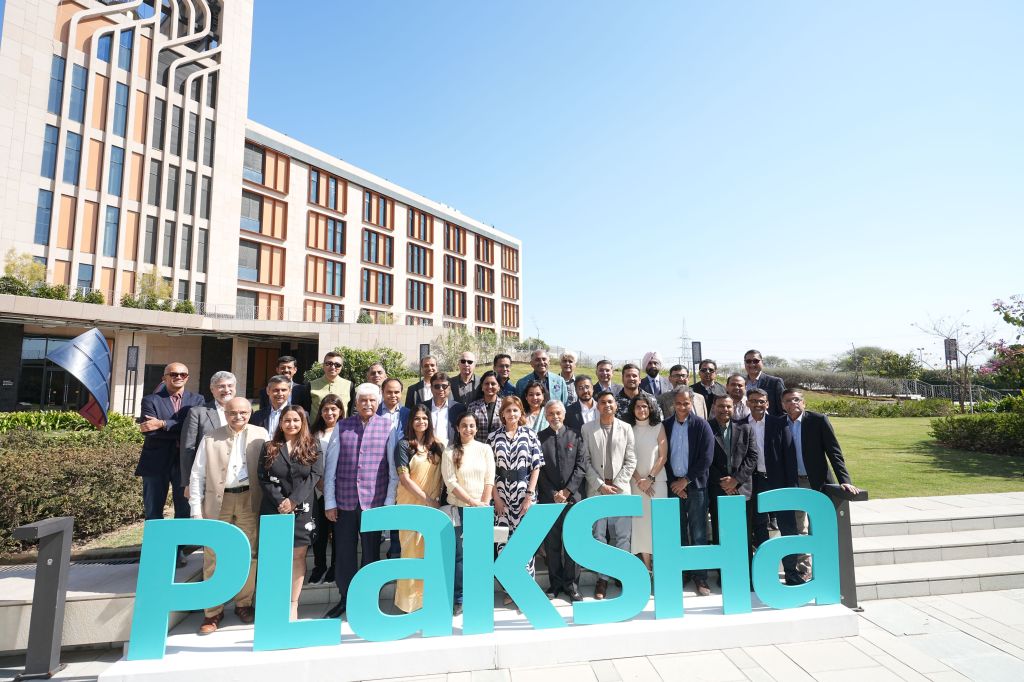It’s not just Prime Minister Narendra Modi who is talking about artificial intelligence and its benefits for the humankind on a global stage, but a university in Mohali, Punjab, also wants to be the world’s best in the field of AI.
Plaksha – a technology university set up seven years ago – told FE that it has secured Rs 1,500 crore in philanthropy (from inception till date), and will use this money to be the world’s best engineering institution in the field of AI. Towards that goal, it has started the School of AI & Computer Science on the campus.
Prof Rudra Pratap, founding vice-chancellor of Plaksha, said that with the launch of the School of AI & Computer Science, Plaksha is building an ecosystem where students are not only technically-skilled, but also socially-conscious innovators. “We want to be the next Takshashila, which was once the world’s premier seat of learning,” Prof Pratap said. “Today is the world of AI, and so excelling in AI is what will define us.”
Funding of Rs 1,500 crore
This money has been raised from some of India’s most influential business leaders and entrepreneurs, including Rakesh Bharti Mittal (Bharti Foundation), Harish & Bina Shah Foundation, Axis Bank, Havells, Deepak Parekh (HT Parekh Foundation), Binny Bansal (Ex-Flipkart), Suchitra Lohia (Indorama Ventures), Hitesh Oberoi and Ambarish Raghuvanshi (InfoEdge), Neeraj Aggarwal (BCG), and SK Jain (RatnaTraya Capital).
The School of AI & Computer Science is backed by the Harish & Bina Shah Foundation. “It will focus on AI applications in healthcare, sustainability, and ethics, while fostering entrepreneurship and robotics,” Harish Shah, founder & MD of Signet Capital, told FE. “With strong industry partnerships and collaborations with top global institutions like Penn Engineering and University of California Berkeley, students will gain global exposure and hands-on experience with real-world challenges.”
Shah added that AI will be central to addressing the world’s most pressing issues, from healthcare to sustainability. “Plaksha’s interdisciplinary approach will not only develop future AI leaders, but also ensure they are equipped to create meaningful global impact,” he said. “The Rs 1,500 crore will not only fund the development of cutting-edge research centres and labs, but also support scholarships for meritorious students, ensuring that financial barriers do not hinder access to world-class education.”
Complementing the School of AI & Computer Science, Plaksha inaugurated the HDFC Limited Innovation Hub, supported by the HT Parekh Foundation. Spanning 25,500 sq-ft across two floors, the hub will foster hands-on learning, design thinking, and collaborative projects, bringing together students, faculty, and industry experts to tackle real-world problems and develop solutions with societal impact.
Neeraj Aggarwal, chairman, Asia Pacific, Boston Consulting Group, and chair of the Board of Trustees at Plaksha University, added that by nurturing future-ready leaders in AI and technology, the aim of the university is to position India at the forefront of global innovation.
Prof Pratap said that in addition to the focus on AI, Plaksha has three big goals.
One is reimagining engineering education for the 21st century, and how to integrate social sciences with engineering.
Two, how can AI and engineering solve grand challenges India is facing – such as cleaning River Ganga or making agriculture sustainable in Punjab.
Three, making an impact beyond the walls of the university.
(Indian scriptures state that the River Saraswati, synonymous with learning, originated from a world tree called plaksha, which grew in the foothills of the Shivalik. The name Plaksha reflects the idea of the university as a tree, from which a river of learning flows endlessly. The university is spread over a 50-acre campus close to the Chandigarh International Airport.)


